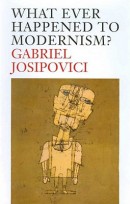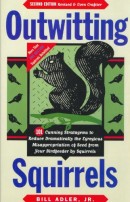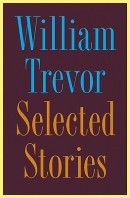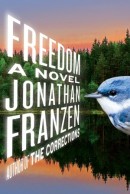 Rather than round up a few of the more traditional lists of the year’s best and worst, I thought I would point you to some bloggers who wrote more broadly about their year in reading. Below are some links. Two books that I’ve seen appearing again and again on lists are The Canal
Rather than round up a few of the more traditional lists of the year’s best and worst, I thought I would point you to some bloggers who wrote more broadly about their year in reading. Below are some links. Two books that I’ve seen appearing again and again on lists are The Canal by Lee Rourke, a debut novel about a London man who embraces boredom, and Stoner
, the 1965 novel by John Williams (what are the odds??) that seems to develop a stronger and stronger cult every year. I need to finally read it. OK, on to the links:
John Self offers a “blogger’s dozen,” 13 of his favorite reads from 2010, only a few of them published this year. One of them is a book he previously got me interested in, which includes the line: “A man who wishes to transfer his experience to the page might as well try to throw a typewriter at the moon.” . . . William Rycroft’s list includes a slim debut novel published by an 84-year-old in 1980, “a perfectly distilled portrait of marriage that had it been written by a new writer today would surely be being hailed as a masterpiece and nominated for awards all over the place.” It also includes a novel about which he says, “I’ll eat my hat if you can find a more enjoyable novel that combines cannibalism, starvation, self-immolation and public conveniences.” . . . Dan Wagstaff at the Casual Optimist lists a wide-ranging set of fiction, comics, and nonfiction, including two books about the Internet and what it does to us, two “embedded” political books, and Patti Smith’s award-winning memoir. . . . Anthony at Time’s Flow Stemmed enjoyed his immersion in the personal writings of Virginia Woolf: “Reading (and rereading) more deeply into a writer’s output, over a few months, is proving more satisfying than my recently acquired habit of flitting from author to author.” . . . Steve Donoghue, the managing editor of Open Letters Monthly who, from what I can gather, reads literally thousands of books a year, lists his best and worst of what was published in 2010, and also expounds on them with no shortage of strong opinion: best fiction, best nonfiction, worst fiction, worst nonfiction. . . . Barnes & Noble lists some of the year’s best uncategorizable books, including novels in woodcuts, illuminated art from the 15th century, and an atlas of San Francisco.

 If you’ve reached this point and still need holiday gifts (or if you’re looking to redeem an Amazon gift certificate someone gave you), below are some belated ideas for the readers in your life. Some of them are related to things that happened on The Second Pass this year, some are not.
If you’ve reached this point and still need holiday gifts (or if you’re looking to redeem an Amazon gift certificate someone gave you), below are some belated ideas for the readers in your life. Some of them are related to things that happened on The Second Pass this year, some are not. Here’s
Here’s  At the New Yorker’s Book Bench, Deborah Treisman
At the New Yorker’s Book Bench, Deborah Treisman  This guest post was written by Kevin Kinsella, a writer and translator living in Brooklyn. His translation of Sasha Chernyi’s Poems from Children’s Island, from Russian, is forthcoming from Lightful Press.
This guest post was written by Kevin Kinsella, a writer and translator living in Brooklyn. His translation of Sasha Chernyi’s Poems from Children’s Island, from Russian, is forthcoming from Lightful Press. In
In  Sure, you can buy your friends and family safe books this holiday season; books you know they will “read” and “enjoy.” But why not spice up their library with, say,
Sure, you can buy your friends and family safe books this holiday season; books you know they will “read” and “enjoy.” But why not spice up their library with, say,  The Millions is in the middle of it annual series treat, A Year in Reading, in which various contributors recommend the best books they read this year, whether published in 2010 or not. The site’s been kind enough to ask me to participate the past two years. My entry is still to come, but there’s a lot up already: Lionel Shriver chooses to do God’s work and
The Millions is in the middle of it annual series treat, A Year in Reading, in which various contributors recommend the best books they read this year, whether published in 2010 or not. The site’s been kind enough to ask me to participate the past two years. My entry is still to come, but there’s a lot up already: Lionel Shriver chooses to do God’s work and  My original plan was to write about Freedom in, say, four or five chunks, simply charting some of my responses to it as I went. That plan is out the window. Instead, I’m working on something longer about the book that I will post sometime before the holidays. In short, what happened is this: my reactions added up to a deep and honest bewilderment at the virtual unanimity of praise the book has received. On balance, I found it disappointing (and irritating) for almost exactly the same reasons I was underwhelmed by The Corrections. I’ve written before about the essay Franzen wrote for Harper’s that kick-started the best-selling phase of his career, and I’ve shared this excerpt from that essay, in which he’s talking about writing The Corrections:
My original plan was to write about Freedom in, say, four or five chunks, simply charting some of my responses to it as I went. That plan is out the window. Instead, I’m working on something longer about the book that I will post sometime before the holidays. In short, what happened is this: my reactions added up to a deep and honest bewilderment at the virtual unanimity of praise the book has received. On balance, I found it disappointing (and irritating) for almost exactly the same reasons I was underwhelmed by The Corrections. I’ve written before about the essay Franzen wrote for Harper’s that kick-started the best-selling phase of his career, and I’ve shared this excerpt from that essay, in which he’s talking about writing The Corrections:  If you were to ask for a list of my favorite writers, you might hear a name or two before you heard William Trevor. You might not. Charles McGrath reviews
If you were to ask for a list of my favorite writers, you might hear a name or two before you heard William Trevor. You might not. Charles McGrath reviews  I’ve finally taken the plunge into Freedom, and since every magazine, newspaper, blog, wire service, and children’s lemonade stand has reviewed it already, I figured I would blog about it in pieces rather than offer a more formal review. I was partly inspired to tackle it now because the most recent issue of n+1 offers reactions to the novel by four of the magazine’s editors, and I’m interested to read those after finishing the book.
I’ve finally taken the plunge into Freedom, and since every magazine, newspaper, blog, wire service, and children’s lemonade stand has reviewed it already, I figured I would blog about it in pieces rather than offer a more formal review. I was partly inspired to tackle it now because the most recent issue of n+1 offers reactions to the novel by four of the magazine’s editors, and I’m interested to read those after finishing the book.